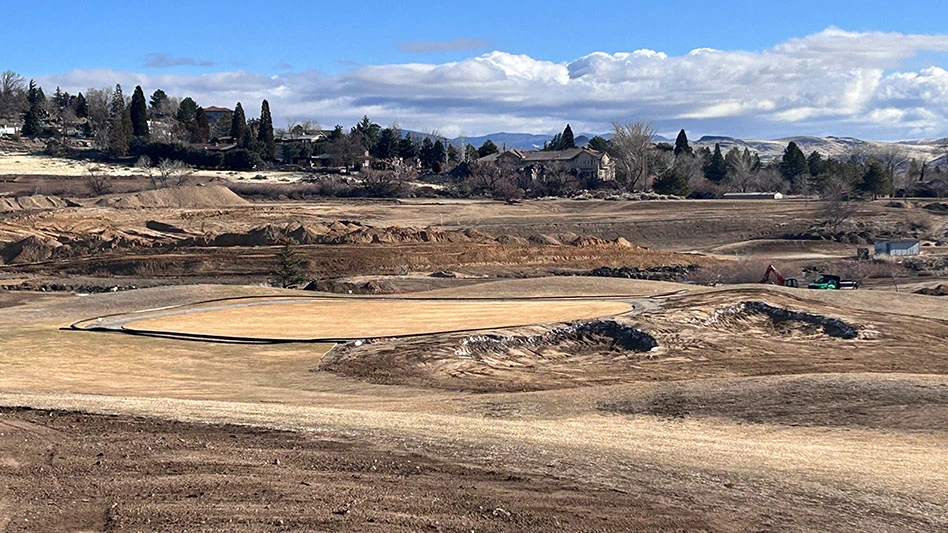Few challenge the concept that the golf course superintendent is the most, if not the only, essential individual working at golf course properties, where the success and welfare of each golf course program is unequivocally determined by how well the golf course superintendent performs his/her job. The troubling question every GCSAA member should be asking is: Why if the individual golf course superintendent is held in such high esteem isn’t the profession itself held in similar esteem?
Why do superintendents have to ask for privileges that are extended routinely to sister professionals in golf? Why are superintendents granted written contract security less frequently than sister professionals? Why do superintendents attend fewer board meetings than sister professionals? Why is it generally acceptable for golf course superintendents to be summarily dismissed, but unacceptable for sister professionals to be similarly dismissed? When was the last time we saw a golf professional or club manager locked out of his/her office and/or denied access to course property? Why do superintendents have to fight for fair separation packages when dismissed when sister professionals don’t?
Some might think only the less experienced and more vulnerable superintendents suffer the above indignities. This isn’t the case, however, because for more than 20 years, I’ve watched the very best superintendents get pushed around with equal impunity. Why does a 2004 Golf Course News survey indicate that 58 percent of the most essential individuals working at the nation’s golf courses do not feel secure in their jobs? Could there be a greater disconnect?
The definitive reasons why superintendents are shown the lack of respect the above rhetorical questions depict are: (1.) because the golf course superintendent profession hasn’t effectively dealt with these issues; and (2.) because if employers know they can get away with it, they’ll continue to do it until the root causes of the problem are addressed.
The two root causes why the golf course superintendents’ profession has failed to gain the national respect is deserves are:
First, no one represents the profession per se to ensure it’s presented in the proper light. I realize most people, including GCSAA members, believe that because the vast majority of superintendents and assistants are GCSAA members, the association represents the profession. However, this is a misread because the GCSAA is a membership organization that by definition tends to the needs of its individual members and not those of the profession as a whole, which are two different things.
Looking at this another way, while the GCSAA has been consistently effective tending to its members throughout the years, it has yet to accept the responsibility to shape the profession, itself. This is understandable because the GCSAA’s charter purpose didn’t include this responsibility. However, because the need for the profession’s effectiveness has grown throughout the years, we’re now at the point where there’s no one else to pass the baton to except the GCSAA. Accordingly, because their profession virtually has gone unattended, the indignities suffered by superintendents to date will only continue to escalate further until the GCSAA realizes the welfare of its members is forever entwined with the respect, or lack thereof, accorded their profession.
Second, as a result of the intense political infighting that occurred within the GCSAA during the early 1980s, a political message was delivered to future generations of GCSAA members that basically stated the governing rules of the association had been set for the foreseeable future and they weren’t to be messed with. To assure there would be little messing around, the GCSAA bylaws were arbitrarily amended at the time to require a stifling mandatory two-thirds vote of members to amend any bylaw provision. (See my November 2005 GCN column.)
A direct by-product of these maneuverings is that subsequent GCSAA boards have been hesitant to pursue meaningful policy change because the combination of the inevitable politics that attaches to every policy-change issue, together with the need to achieve a difficult-to-obtain two-thirds approval vote of the membership consistently has offered little hope for success. As a result: Natural leadership types within the membership avoid board of director service because they realize there will be little opportunity to make a difference; archaic election procedures continue; board performance becomes less transparent; and members have yet been given their first opportunity to vote on a 25-year-old volatile relocation issue.
Is it any wonder why the indignities that have been fostered on superintendents for decades go unchallenged and will continue to go unchallenged until enough members get upset enough to forge change. This goal will be realized only through a concerted chapter level campaign.
Recommended change
To bring life and respect to the golf course superintendent profession:
1. The GCSAA must pursue the one proven way to develop respect for a profession – through education. One of the most consistent problems superintendents have always had is that the vast majority of their employers don’t have a basic understanding of how and why they do their jobs. Through history, effective teachers at every level always have been universally respected. So, too, will the golf course superintendent profession be respected – putting an end to all the present day indignities – once it establishes itself as a worthy and dedicated teacher of the brethren. (See my July 2006 GCN column for a profile of recommended educational programming.)
2. The GCSAA must upgrade its election procedures to insure that more of its better-qualified members see the call to duty and become more willing to pursue committee and Board service throughout the Association. (More on this in a future column.)
3. GCSAA members must marshal their forces to eliminate the mandatory two-thirds approval vote needed to amend the association’s bylaws. Until this happens, the GCSAA, its members and the profession will be locked in a 1980s time frame forever.
The ball is now on the GCSAA membership’s side of the court. Until members realize an indignity fostered on one superintendent is an indignity fostered on all superintendents, they’ll remain outside of golf’s inner family looking in. GCN

Explore the November 2006 Issue
Check out more from this issue and find your next story to read.
Latest from Golf Course Industry
- The Cabot Collection announces move into course management
- Carolinas GCSA raises nearly $300,000 for research
- Advanced Turf Solutions’ Scott Lund expands role
- South Carolina’s Tidewater Golf Club completes renovation project
- SePRO to host webinar on plant growth regulators
- Turfco introduces riding applicator
- From the publisher’s pen: The golf guilt trip
- Bob Farren lands Carolinas GCSA highest honor







